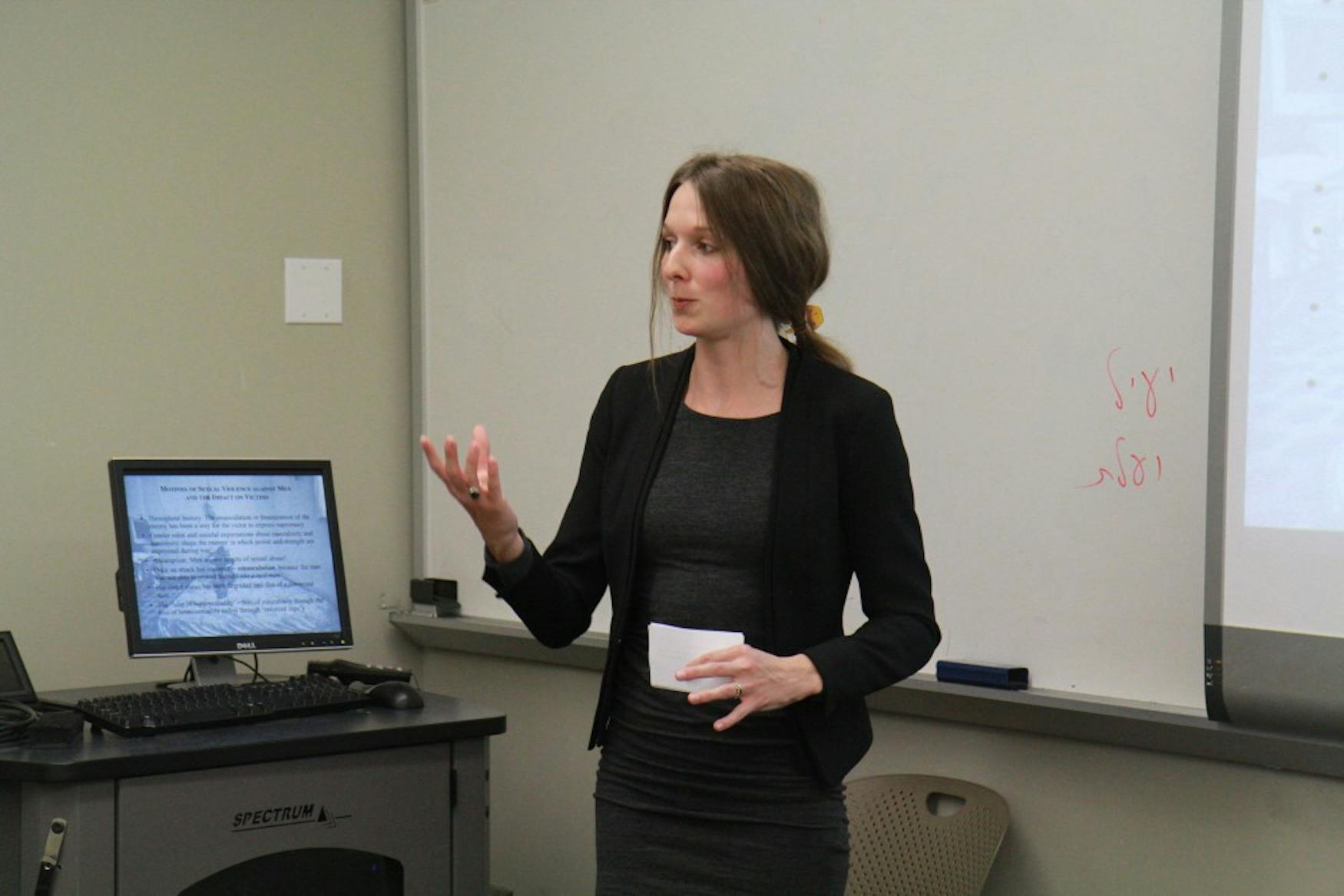Sex crimes against men in war zones addressed in talk
According to scholar Maike Isaac, one common denominator of every war-conflict zone of the last 20 years is sexual abuse against men. Isaac argued in a lecture on Monday that the prevalence of male sexual assault underscores the importance of changing determinations that the International Criminal Court has made regarding such conflict.
In the program, Isaac explained that the issue of male rape in situations of war is a constant problem that goes unnoticed in the context of international law as part of a problem that she considers in the larger context of “generally a big understatement of the sexual violence against men.”
Isaac, who has spent the last year completing her Masters in Law thesis and exploring the International Criminal Court’s stance on rape and sexual assault, is currently interning at the Boston office of Physicians for Human Rights at a program researching and publishing information on sexual violence in war. Additionally, she explained in her lecture that “of over 4,000 international and national human rights organizations that have programs of advocacy and support for victims of sexual violence in war time, only three percent mention sexual violence against men in their programs.”
Her thesis focused on ten cases prosecuted in the International Criminal Tribunal for the former Yugoslavia, in which the definitions of rape in war zones were partially determined, she said. In the vast majority of the cases, the ICTY determined that the perpetrator had to commit the rape themselves and that rapes ordered by a third party were considered violence, and thus the third party could not be convicted of rape. Additionally, the ICTY only classified rape as a crime against humanity. Therefore, in cases in which the overarching umbrella accusation of committing a crime against humanity is not stated, it is impossible to convict a person of committing rape. These acts were then referred to as “other acts of violence” according to Isaac.
In her presentation, Isaac focused on three cases in which the tribunal synthesized their definitions of rape. The only case that served to widen the definition of rape, she said, was the third case she discussed, in which an officer named Ranko Cesic was convicted of rape for forcing two prisoners to hit each other and perform oral sex on each other. This case was integral in the context of earlier rulings, in that it was the first in which the perpetrator was not specifically involved in the action and the court was still able to convict, Isaac argued. All other cases served only to narrow these definitions, only convicting in cases of direct action.
As a final example, Isaac cited a case filed against Jean-Pierre Bemba Gombo, which was completed in 2013. This case was one of the first cases dealing with sexual violence committed against men that was tried by the ICC after its establishment. This case, which dealt with the forced penetration of men in the Central African Republic by soldiers, served to widen the definitions of rape for cases in which the rape was not carried out by the perpetrators themselves, but the perpetrator was still convicted of rape, Isaac said. This change in international law, which Isaac described as a “positive step forward,” was as significant as the “first serious attempt in international criminal law to consider sexual violence beyond its obvious wrong in the forced sexual act and to understand what makes sexual violence such a powerful means of warfare,” she argued.
Ultimately, Isaac determined that rapes of men in war zones typically go under-reported and are generally neglected by international law. Rape and sexual violence committed against men in war zones, which according to Isaac, “is meant to shatter societal structures and gender roles,” is generally only viewed as violence, which serves to further reinforce the common view that men are not targets of sexual abuse.
In recognizing that men who commit rape against men deserve to be prosecuted in the context of sexual violence, Isaac added, the International Criminal Court would play an important role in promoting understanding and recognition of violence against men in armed conflict.
The event was sponsored by the International Center for Ethics, Justice and Public Life.



Please note All comments are eligible for publication in The Justice.